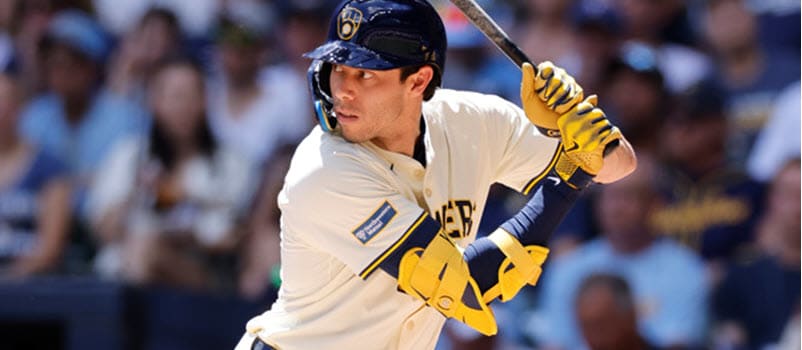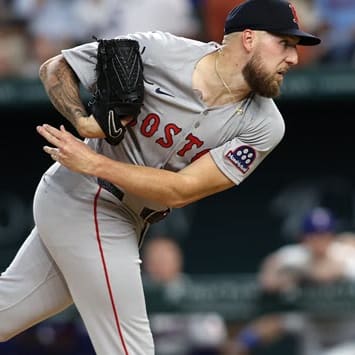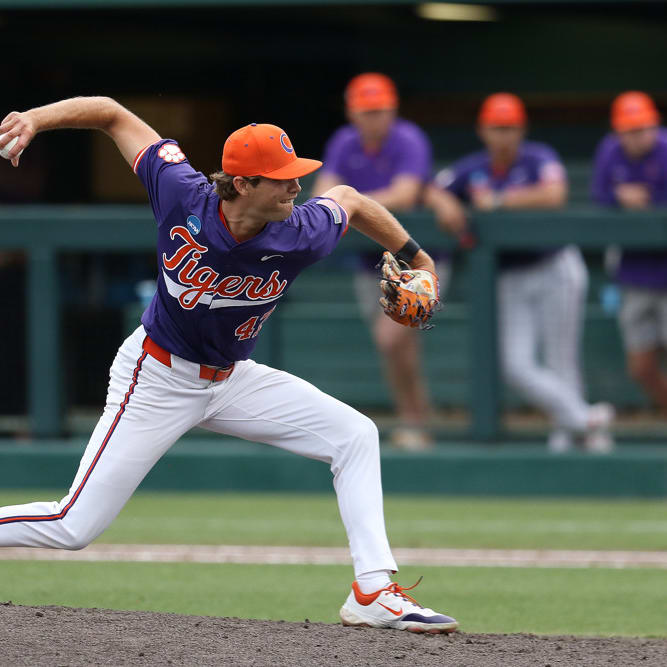This article is part of our Fantasy Baseball Injury Report series.
Last week I briefly mentioned Rodriguez's mild ankle sprain sustained following a collision with the outfield wall. The injury is still considered a low-grade injury, but the diagnosis has since been confirmed as a "high ankle" or syndesmotic sprain.
A high ankle sprain is different from the injury most people associate with an ankle sprain. The "normal" ankle sprain is a lateral ankle sprain and occurs when the ligaments on the outside are stressed. A medial ankle sprain can occur, but these injuries occur less frequently and involve a triangle-shaped unit of ligaments on the inside aspect of the ankle. A high ankle sprain involves a very specific joint located where the distal ends of the tibia and fibula form the ankle mortise. This joint, known as the distal tibiofibular joint, is fortified by the strong interosseous ligament and the anterior and posterior tibiofibular ligaments. If any of these ligaments are sprained, the injury is considered a high ankle sprain.
Treatment for a high ankle sprain is like that of a lateral or medial ankle sprain but recovery generally takes longer to complete. Surgery can be necessary if the associated damage is significant and can help improve return to play timelines in certain situations. Fortunately, surgery isn't needed on Rodriguez's ankle and the team is hopeful he won't miss much more than the minimal amount. He is set to be re-evaluated on August 1, meaning a best-case scenario should be shortly after that round of testing. Victor Robles has assumed
Last week I briefly mentioned Rodriguez's mild ankle sprain sustained following a collision with the outfield wall. The injury is still considered a low-grade injury, but the diagnosis has since been confirmed as a "high ankle" or syndesmotic sprain.
A high ankle sprain is different from the injury most people associate with an ankle sprain. The "normal" ankle sprain is a lateral ankle sprain and occurs when the ligaments on the outside are stressed. A medial ankle sprain can occur, but these injuries occur less frequently and involve a triangle-shaped unit of ligaments on the inside aspect of the ankle. A high ankle sprain involves a very specific joint located where the distal ends of the tibia and fibula form the ankle mortise. This joint, known as the distal tibiofibular joint, is fortified by the strong interosseous ligament and the anterior and posterior tibiofibular ligaments. If any of these ligaments are sprained, the injury is considered a high ankle sprain.
Treatment for a high ankle sprain is like that of a lateral or medial ankle sprain but recovery generally takes longer to complete. Surgery can be necessary if the associated damage is significant and can help improve return to play timelines in certain situations. Fortunately, surgery isn't needed on Rodriguez's ankle and the team is hopeful he won't miss much more than the minimal amount. He is set to be re-evaluated on August 1, meaning a best-case scenario should be shortly after that round of testing. Victor Robles has assumed Rodriguez's spot in the outfield and is worth a speculative add in most formats. Robles is batting .400 in the nine games since the All-Star break, including a home run to pair with four stolen bases.
The Angels outfielder suffered a setback in his attempted return from a meniscectomy in his left knee. Trout, who underwent the procedure on May 3, lasted just two innings in his first rehab appearance with Triple-A Salt Lake after reporting soreness in the joint. Testing on the knee determined the soreness and a reported pop was the result of scar tissue breaking up, and Trout is optimistic he will resume running soon. Scar tissue isn't uncommon following certain surgeries and will unlikely be an issue moving forward. However, Trout will need more time on his rehab assignment, and his inherent injury risk will remain elevated for the remainder of the season.
The Brewers outfielder has dealt with a troublesome back for several seasons now and his latest flare up reiterates the issue isn't going away anytime soon. The team is calling the injury back inflammation, but it is apparent based on other comments by Brewers president of baseball operations Matt Arnold that the issue is disc related. Arnold mentioned the injury "can radiate to other parts, including his leg, his nerve, etc.," suggesting Yelich is managing a herniated disc that is impinging an area of his spine. Any questions about the severity of the injury were further answered when manager Pat Murphy said his outfielder will ultimately need surgery to address the problem.
Disc injuries are often addressed with a surgery known as a microdiscectomy. In the procedure, a small incision is made along the mid line of the back, and the problematic piece of disc is removed. This approach often leaves the ligaments and the muscles untouched, helping reduce the overall time lost.
The team hopes rest and rehab will allow Yelich to return at some point this season, but it does appear he is eventually going to go under the knife. Yelich could opt to have surgery before the conclusion of the year if Milwaukee fails to stay atop the NL Central but, for now, a return this season remains the focus. Fantasy managers invested in Yelich are in a precarious spot as the former NL MVP remains productive, batting .315 with a .406 on-base percentage while hitting 11 homers and collecting 42 RBIs and 21 stolen bases. However, he will be a considerable injury risk moving forward in a way that limits his value in all formats, including dynasty leagues.
Check Swings
Jorge Mateo: The Orioles infielder suffered a "transient dislocation" of his left elbow when he collided with teammate Gunnar Henderson. A transient dislocation is often referred to as a subluxation and is used when a joint is forced out of alignment but returns to its original positioning on its own. While it is fortunate that his elbow corrected itself without intervention, the displacement still likely resulted in damage to the surrounding soft tissue. As a result, the Baltimore medical staff is still evaluating the joint, specifically the ligaments in the area. The amount of damage accrued to these structures will dictate the treatment options and ultimately the amount of time Mateo will need. Surgery remains a possibility here, and a quick return seems unlikely, even if that is not needed. Connor Norby has taken over a second base for the Orioles.
Mason Miller: This season I've lamented the number of players sidelined after being hit by a pitch. Now I may to start pleading for players to also stop hitting inanimate objects. Earlier this month Cubs reliever Colten Brewer broke his left hand after punching a wall. Now the A's closer is out after Miller slammed his non-throwing hand down on a training table, breaking his pinkie finger. He has been placed on the 15-day IL, though surgery will not be needed. A return when first eligible is possible since it's his non-throwing hand.
Mookie Betts: Betts is taking positive steps forward in his recovery from a broken hand and is expected to resume batting practice this week. He's still several weeks away from returning to the lineup but fantasy managers rostering Betts can see the light at the end of the tunnel.
Kodai Senga: There's not much to say about Senga at this point beyond expressing frustration for what will be a lost season. The right-hander suffered a moderate to severe calf strain in his season debut and will not pitch again in the regular season. The Mets are holding out hope he can be ready for a possible postseason appearance, but that does little for fantasy purposes. A right posterior shoulder capsule strain followed a triceps injury that kept Senga out to begin the year.










